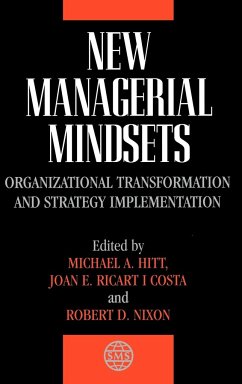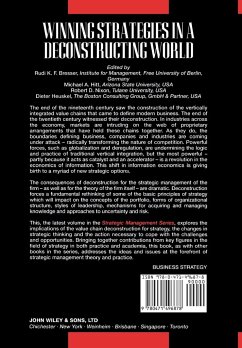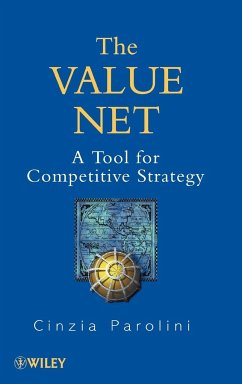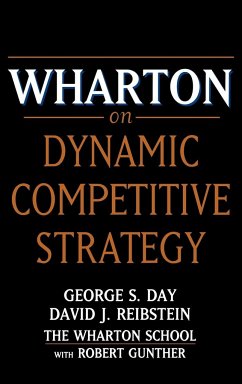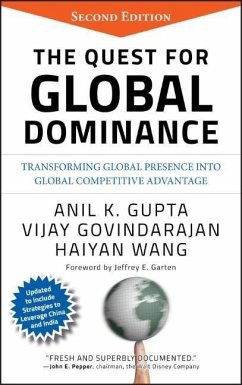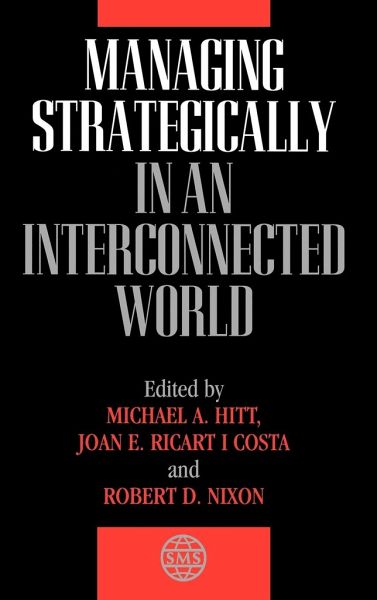
Managing Strategically in an Interconnected World
Versandkostenfrei!
Versandfertig in über 4 Wochen
155,99 €
inkl. MwSt.

PAYBACK Punkte
78 °P sammeln!
Managing Strategically in an Interconnected World Business is now at a new frontier as managers face an increasingly interdependent and interconnected world. Sparked by the technological revolution and globalization of business, an exceedingly complex and challenging competitive landscape has been created which has been referred to as the third industrial revolution . Firms face significant uncertainty, ambiguity and an increasing number of strategic discontinuities in this hyper-competitive world. The key to survival for the modern business manager is strategic flexibility. This strategic fle...
Managing Strategically in an Interconnected World Business is now at a new frontier as managers face an increasingly interdependent and interconnected world. Sparked by the technological revolution and globalization of business, an exceedingly complex and challenging competitive landscape has been created which has been referred to as the third industrial revolution . Firms face significant uncertainty, ambiguity and an increasing number of strategic discontinuities in this hyper-competitive world. The key to survival for the modern business manager is strategic flexibility. This strategic flexibility will require innovation, speed and the use of information and knowledge. Only then can managers consistently find new methods of achieving competitive advantage. The editors have selected contributions that address two major themes of this new business environment and the means of managing strategically within it. Part I: Interconnected World: The Global Environment, Uncertainty andKnowledge Development looks at the rapid and largely unpredictable changes that occur, exemplified by the recent economic shocks in Asia and Russia and the political changes in Eastern Europe. Chapters in this section range from a focus on the central European banking system (of vital importance in the forthcoming changes in the EU to a single currency), to the executive strategic orientations in Chinese state-owned enterprises and managerial strategies of western companies in Asia. Further chapters explain the development and sharing of knowledge to build strategic flexibility. They explore how firms learn and thereby develop dynamic capabilities and core competencies. Part II: Interconnected Firms: The Role of Cooperation, Trust, Governance and Technology begins by examining how cooperative strategies have become a significant strategic tool in recent years, but why there is still a high failure rate of strategic alliances (the most common form of cooperation). The development of collaborative know-how is explored as well as the entrepreneurial opportunities that can be created by alliances to increase resources and develop new capabilities. Developing these new capabilities requires that firms have the necessary absorptive capacity and build trust with their partners. Even with trust, higher risk collaborative ventures, particularly between international partners, require governance. Trust in and governance of interorganizational partnerships within several different international contexts including Europe, Asia and North America is also explored. Thus, Managing Strategically in an Interconnected World addresses a number of critical issues to successfully navigate in the new frontier and build sustainable competitive advantages.





